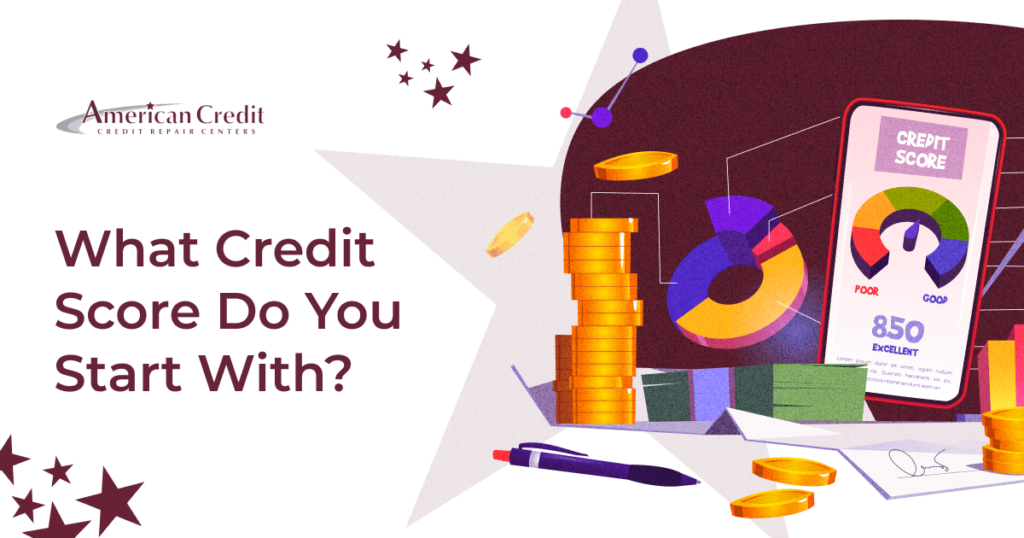
A common myth is that your credit score starts at zero. However, that’s not the case, as the lowest possible FICO® or VantageScore® is 300. If you’ve never had credit, you won’t have a credit score. Once you start using credit, your creditworthiness can be assessed and a credit score is calculated, but not until it’s requested by a lender or other entity.
Here we’ll look at the factors that affect what credit score you start with.
How to Get a Credit Score
Your starting score, when it is calculated, is not permanent. For most people, this doesn’t happen until they turn 18, the age at which most creditors allow someone to open an account in their own name. FICO’s minimum scoring criteria start with requirements to have at least one credit account open for six months or more, and at least one account that’s reported to one of the three major credit bureaus within the past six months.
If you’re just starting out, you can take steps to establish good credit, such as:
- Becoming an authorized user on someone else’s account.
- Apply for a secured credit card, which requires a security deposit.
- Take out a loan from a credit union to build your credit history.
Using a secured card responsibly, or paying a lender over time, is reported to credit bureaus. And if you become an authorized user, you can benefit from the primary account holder’s credit history. Good financial habits will enable you to keep improving your credit score.
Do I Need a Credit Card to Have a Credit Score?
You don’t necessarily need a credit card to build your credit. There does need to be at least one line of credit in your name, but you can establish a credit history by taking out a car loan or student loan. If you sign up for Experian Boost, your Experian credit report will include phone and utility payments.
Checking Your Credit Score
As soon as you use a credit card or take out a loan, your credit score will start being calculated. You can check it for free at credit bureau and many credit card account websites. A higher credit score means you are more creditworthy and a more dependable borrower. However, the lower it is, the more difficult it’ll be to get approved for credit cards, obtain favorable interest rates on loans, or rent an apartment.
What Is a Good Credit Score?
Credit scores vary depending on the model used. FICO scores range from 300 to 850. Generally, 670 to 739 is considered good and below 579 is very poor. You’ll be in the very good range at 740 to 799 and exceptional if your credit score is over 800.
A credit score is calculated based on these factors:
- Payment History: Make every payment on time, even if it’s only the minimum payment. This accounts for 35% of your credit score.
- What You Owe: Is determined by your credit utilization, or the percentage of available credit taken up by outstanding balances. This is 30% of the calculation.
- Credit History: Credit scores are calculated by looking at how long you’ve been using credit, certain credit cards, and have held other accounts. That’s 15% of your credit score.
- A Mix of Credit: Using credit cards for revolving debt and installment debt, such as loans, gives you a credit mix, which accounts for 10% of your credit score.
- New Credit Applications: Applying for credit too often can lower your credit score. This accounts for 10% of your score, so try to wait at least three to six months between new credit requests.
How to Improve Your Credit Score
After considering what credit score you start with, making on-time payments, lowering your debt, and tracking credit utilization can help improve your credit score. Negative information on your credit report can hurt your credit, and it shouldn’t always be there. At American Credit, we can help improve your credit score using a pre-litigation process to achieve a high success rate. This has enabled us to satisfy thousands of clients. Call (855) 816-8819 today to start getting on the right track.

Recent Comments